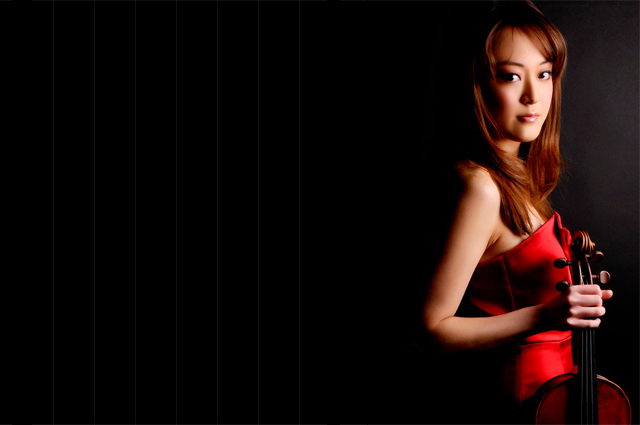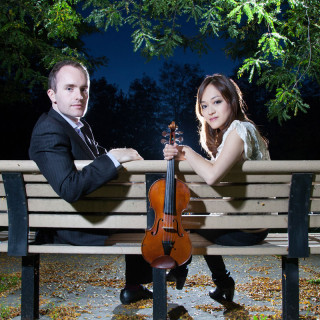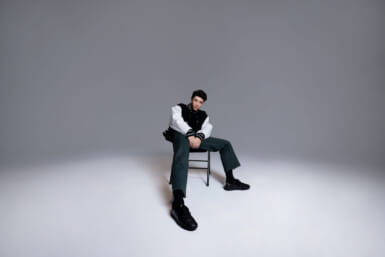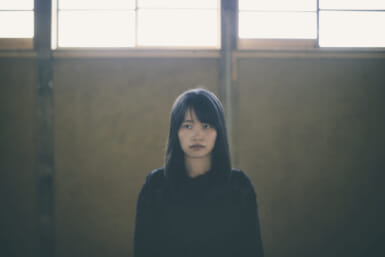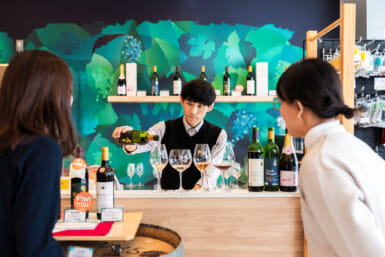Midori Komachi has lived outside of Japan for the majority of her life, but has never let go of her Tokyo roots. The violinist currently lives in London, where she released her debut album earlier this year, and will be giving a concert in Yokohama in November.
Most of us assume that classical music mainly consists of the work of mainland European composers like Mozart, but Midori’s concert will be bringing something very different to Japan. She will perform pieces of music from British composers, which the vast majority of her audience would not have heard before.
The evening is scheduled for November 14 and is part of a new project with the British Council and the Japan British Society. Midori said that she was drawn to the work of British composers—including that of Ralph Vaughan Williams—because they are inspired by the landscapes and countryside of Great Britain. Midori’s lecture recital will be a particularly British affair, held as it is at the British House in Yokohama, but I have to wonder to what extent a Japanese audience will appreciate music they haven’t heard before.
This question is one that Midori is familiar with. “When I am playing works by British composers I am aware that the majority of the audience have never heard this music before. Some works are really rarely performed, even in Britain. You can imagine it is even rarer to hear this music in Japan: the trend is more towards French or German music, and I think that is partially because Japanese people are more used to hearing works by Beethoven and the like, but when it comes to British composers it’s harder to grasp in a way. I find that by introducing these works in a different kind of context and making them easy to understand helps Japanese people get into British music.”
Despite living quite far from Japan she visits several times a year for concerts or for visiting her family, but it was while she was growing up in Hong Kong that she developed an interest in the violin. Her inspiration for taking up the instrument was thoroughly Japanese, however.
“When I lived in Hong Kong a Japanese anime called Sailor Moon was really popular and at school everyone talked about it or was reading the manga. It was a big trend amongst Japanese girls, and I really got into it too and I loved everything about it and I wanted to become one of the characters who became a violinist. There was one scene where the violinist was going around the world, touring and giving concerts and I thought ‘I want to be her!’”
When she told her parents this they dismissed it as just being a fad; they could see the young Midori loved Sailor Moon and didn’t take her desire to learn the violin seriously. For months they didn’t give in to her requests until finally, realizing that she wouldn’t stop asking, they said yes, but on the strict promise that she would have to practice for at least one hour every day. True to her word, she practiced every day, she attended concerts (those of her violin teacher, and those of her mother, who played piano), and now today she is an acknowledged rising new talent.
Her first album was released in April 2014, in partnership with pianist Simon Callaghan. It might be hard for a non-musician to understand what runs through a musician’s mind when they play with another musician in a chamber music setting, but Midori unraveled a bit of the mystery: “it is really gripping emotionally … [when] you have two or more players who play in an equal partnership. You feel that you are listening to the other musician and sometimes taking away from it, like a battle. Sometimes you are playing with each other. It feels like a real sense of a journey from the beginning of the piece to the end. I really enjoy that, not just being a soloist but playing together with someone else and getting to know their sounds and how they fit with your sounds. It’s really like a conversation.”
However, this does raise another question of how different it is to perform music in a concert, compared to being in a recording studio:
“Although I had recorded for several CDs before as a chamber musician, as an ensemble, it was my first experience having a solo part with piano. It was quite challenging, it is a completely different kind of process from performing in a concert to recording. The recording is also about exchanging ideas with the producer, so there is the process of adjusting to each other’s ideas as well. The producer knows how your music will come across from the other side of the microphone and that’s something a little bit different from playing it in a concert, to play a programme from beginning to the end. I had to sit down and listen to my sound for hours at a time, sometimes it made me wonder if this is how I really play, but I was fortunate to work with a great producer and I trusted his opinions, so it was a great experience.”
Having attended several of her concerts it is possible to feel how she expresses really deep emotions through her violin. However, many musicians will tell you how essential it is to have the right instrument, and Midori is no different.
“It is like falling in love, like a partnership or relationship, with the violin. As each instrument has a different personality which can depend on how much it has been played on before, sometimes if it hasn’t been played for a few years it can take a while for it to open up. It is difficult to describe, there is this one point after you have been playing a particular instrument for a while that you feel that ‘yes, this is my instrument. This is my sound.’ However, there are some instruments which you completely don’t agree with sometimes, and that process can be really long. It is really difficult to find the right instrument.”
Midori Komachi Lecture Recital at the British House, Yokohama
When: Friday, November 14. 15:45 (Tea time); 16:30–17:45 (Recital)
Where: British House Yokohama (see map)
How Much: ¥5,000 (Members), ¥5,500 (Guests)
More info: www.japanbritishsociety.or.jp/english/modules/news/article.php?storyid=292

